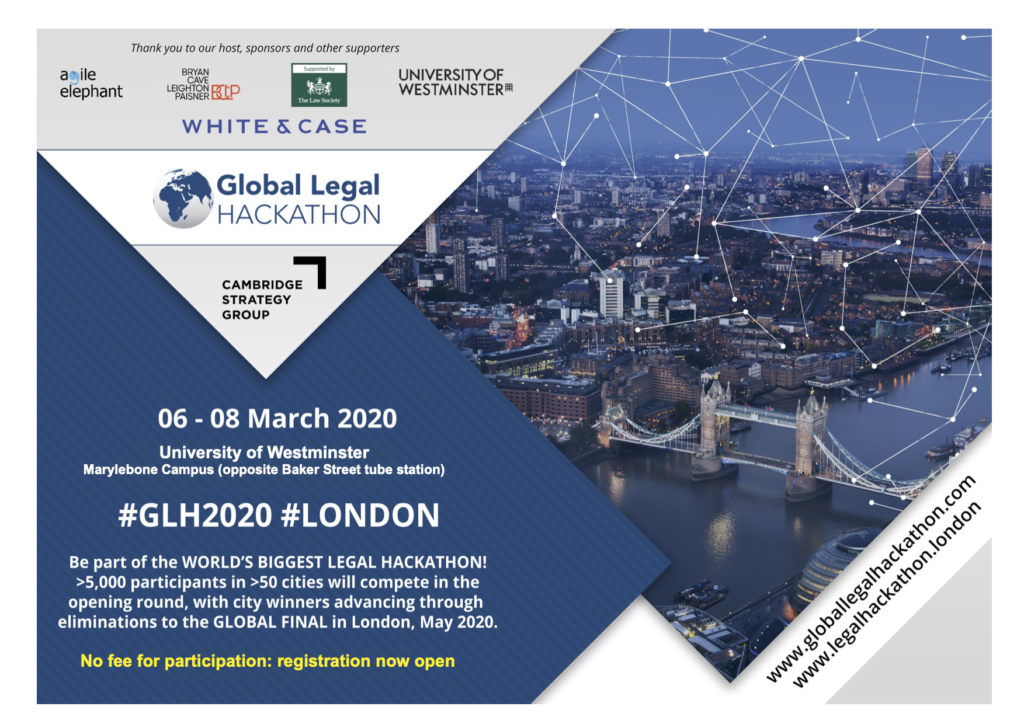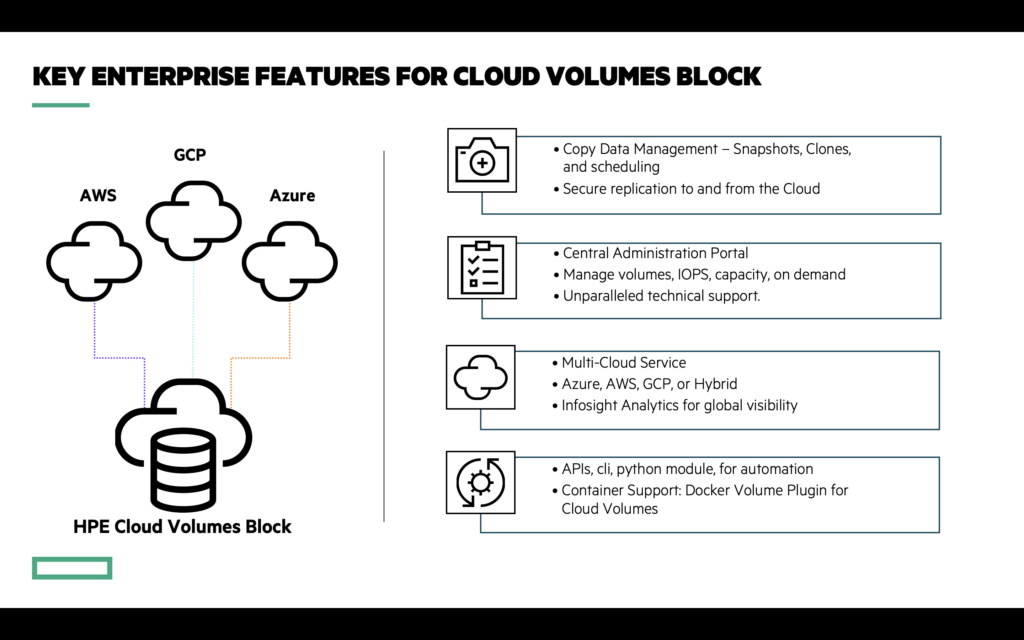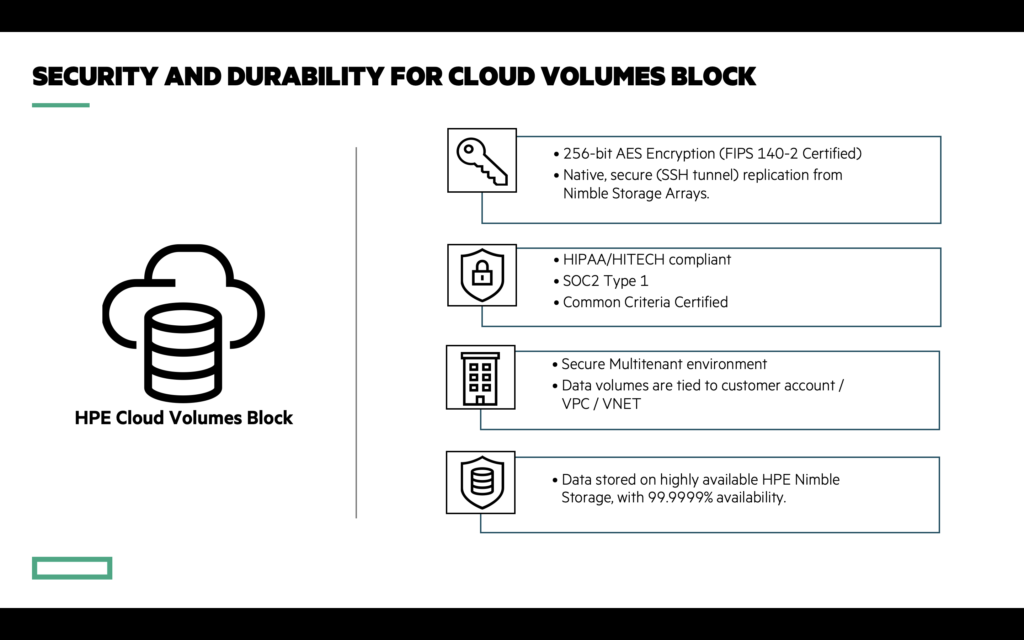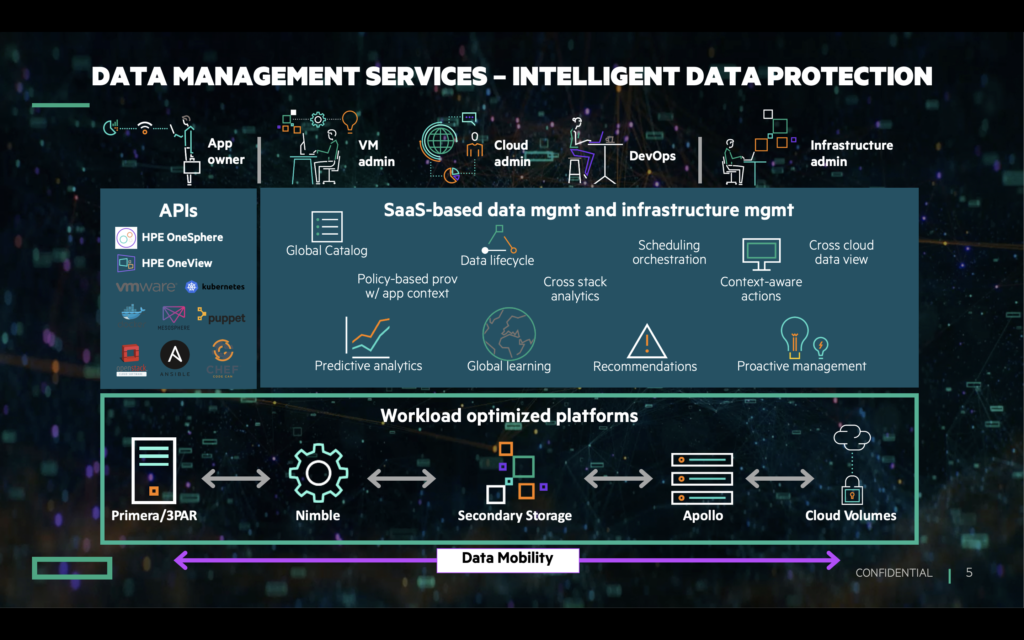Last night we completed the third London edition of The Global Legal Hackathon. As you may know, this is annual event that happens in over 40 cities simultaneously every year, on the same weekend in either February or March. It’s organised by Rob Millard of Cambridge Strategy Group, me (David Terrar) of Agile Elephant, and Fraser Matcham of the University of Westminster. The goal is to bring lawyers, coders, designers and marketers together to improve the practice and business of law, and better access to law for the public. This year the weekend coincided with International Women’s Day, so we added the GLH Inclusivity Challenge, an additional stream to reward ideas that improve equity, inclusion and diversity in the legal profession.
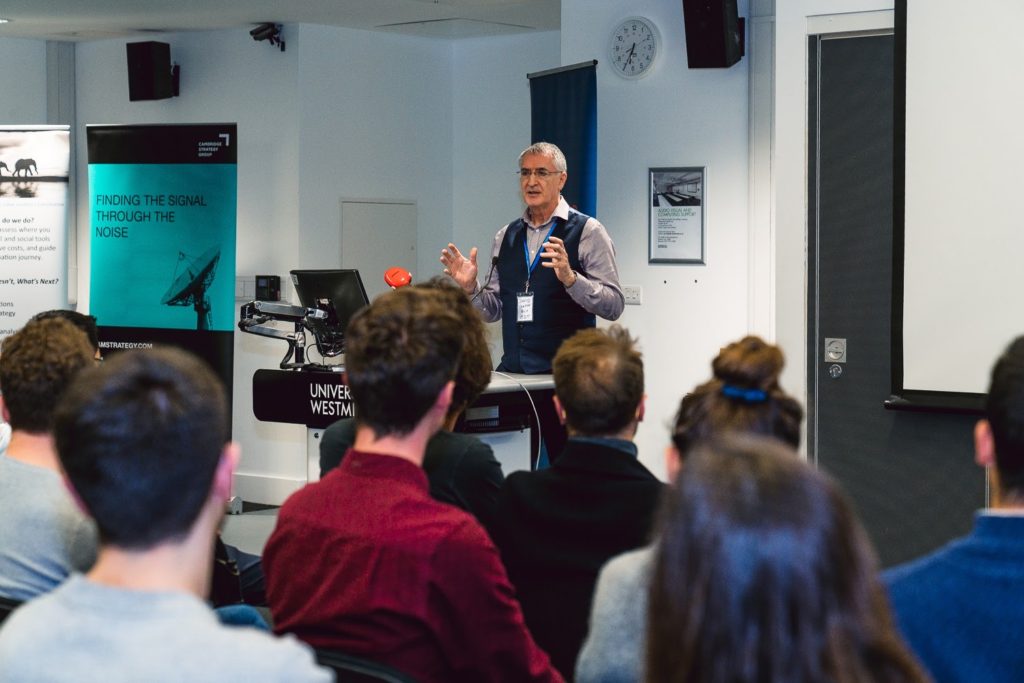
Like so many recent and planned public events, we were affected by the Coronavirus. In the previous two years around half of our signups for the event came in the last week, and almost everyone who registered actually attended. This year we only had 2 signups in the final week (when we were expecting to add over 100), and in the end only half of our registered attendees actually came. However, the 50 that came on Friday evening were the right 50! Full of commitment and enthusiasm. It was notable that everyone was shaking hands, keeping calm and carrying on, as well as following NHS guidance on hand washing, sneezing, face touching and the like. We had a great atmosphere at the start on Friday night and all weekend in our new venue, the Marylebone Campus of the University of Westminster – a big shout out to them for providing us their premises and doing such a great job of hosting us!
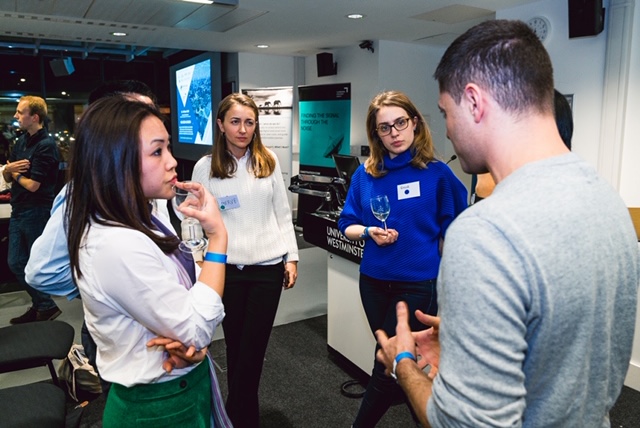
On Friday we had 12 really great ideas, some real innovation and great use of technology pitched to the group, which quickly combined and coalesced in to 7 teams. The teams occupied 7 classrooms up on the second floor, and we had a big space for food, drink, networking and the ideation stage on the ground floor, as well as the Hogg Auditorium for Sunday’s presentations and judging.
Sponsors and Supporters
We must thank law firm sponsors BCLP and White & Case, and our technology sponsor BRYTER for paying for the food, drink, prizes, trophies and other logistics for the event. Nothing fancy – lunches were meal deals from local supermarkets, and evening meals were from Dominos. You can’t have a hackathon without beer and pizza (although wine and soft drinks were provided too). We would also like to thank our supporters – The Law Society, SRA, disruptive.liveand Techcelerate.
Judges
We must thank our fantastic team of highly respected judges, who had such a difficult job this year:
- Jenifer Swallow (Director, LawTech Delivery Panel)
- Mo Zain Ajaz (Global Head of Legal Operational Excellence National Grid)
- Elizabeth Duff (Dean of Westminster Law School)
- Rosemary Martin (GC, Vodafone)
- Priya Lele (Legal Operations Lead, Client Solutions, UK, US & EMEA, Herbert Smith Freehills)
- Nicola Tulk (Programme Manager, Better Markets, Nesta Challenges)
Teams
In no particular order here are the teams who participated, with their ideas explained in one sentence:
| Team Name | Team Rep | Members | Product/Service |
| Wayfarer | Kiran Dhoot | Kiran Dhoot Dan Simpkin Elizabeth Zang Kallun Willock Theofili Elenoglou Steven Rajavinothan Emily Pica Rajdilair Rai | Virtual legal guide aimed at startups who don’t know what they don’t know. |
| Sharmant | Trevor Oakley | Trevor Oakley Atis Gailis Antonio Di Angelo Dipal Thakker | A framework for provenance and safeguards in Import and Export trade |
| Homiie | Tatiana Botskina | Tatiana Botskina Musleh Kahn Alice Abiola Hugo Cheyne | Homiie is a platform that makes the complicated business of buying and selling a house faster, more collaborative and more transparent. |
| The Magic Box | Liz Wong | Liz Wong Giulia Carloni Simon Cheung James SylvesterGuy Stern Merve Ugurlu | An autonomous work allocation platform that ensures efficiency and inclusivity. |
| Team CD | Adam Ford | Adam Ford Geraint John Alec Alston | Empowering small business to solve their debt problems without the need for lawyers. |
| Virtuo | Michael Fatungase | Michael Fatungase Omar Salem Waverly Chmura Joe Reeve Klaudija Brami Danae Balcells Greg Fylaktou | THE virtual office. |
| Easy Rail Rights | Raphaël Bastian | Raphaël Bastian Théo Bernier Laetitia Jacquier-Stefanou Ioannis Stefanou | It is an online platform for claiming refunds for passengers experiencing train cancellations and delays in Europe. |
And the winner is
Inclusivity Challenge winner:
The Magic Box – with their innovative, use of a “blind” mapping algorithm to take gender, ethnic and other biases out of a law firm’s work allocation, aiming to help utilisation and efficiency too.
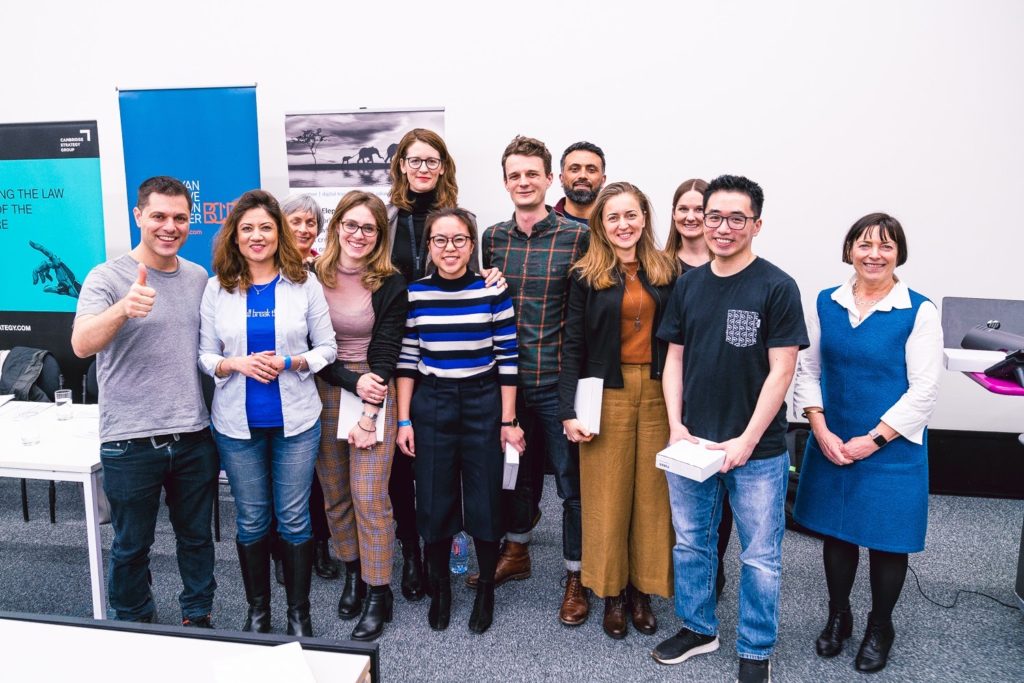
The main event:
Third: Team CD – with their Cockroach Debt solution helping small businesses with automation to improve their cash flow around bad debts, reducing the need for lawyers in many circumstances.
Second: Sharmant – helping international trade with blockchain and other technologies in their solution connecting buyers and sellers to address the labour intensive Letters of Credit process.
First – the overall Winner: Homiie – with a solution combining chatbots, AI and blockchain to address the nightmare of the conveyancing process for buying and selling houses.
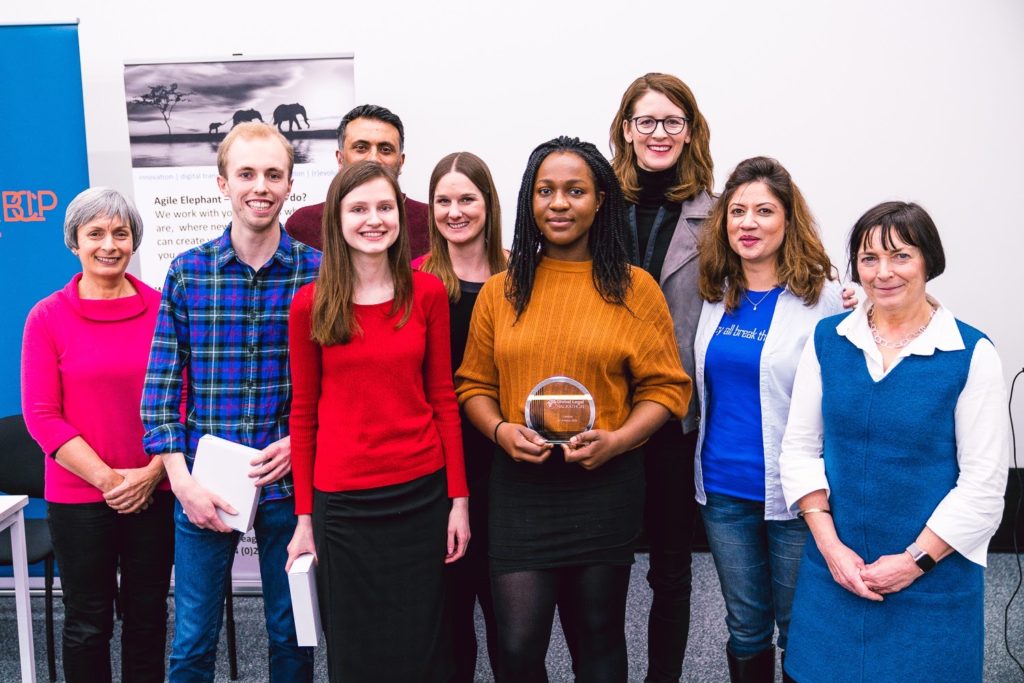
We have a worthy winner, and speaking as someone who is in the thick of buying and selling, just a few weeks before exchange of contracts stage – I want their product right now please!
Homiie and The Magic Box will go forward to the semis and we really hope both London teams make the finals. But the great thing is that all 7 ideas address real pain points, and all got to a position where they really should follow through and get to market. We’ll be encouraging that to happen, and we really want to see some new companies formed out of GLH 2020. We had a blast!
If you want to find our more about the Global Legal Hackathon, or to join our new LinkedIn community, then please contact us.

